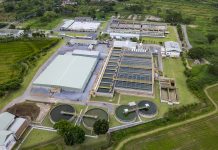
BASF and INOCAS S.A. (Innovative Oil and Carbon Solutions) have signed a comprehensive long-term supplier finance agreement.
The collaboration includes the supply of Macaúba kernel oil and Macaúba pulp oil, a joint research and development project, and options for BASF to acquire equity shares in INOCAS in the future.
The partnership aims to finance INOCAS’ ambitious plan to scale up Macaúba oil production in Brazil on an industrial level, bolstering the country’s leadership in the bioeconomy sector.
Expanding Macaúba Oil Production in Brazil
Macaúba (acrocomia aculeata), a tree native to Brazil, thrives in semi-arid regions and poor soils. Its fruit can yield kernel oil, pulp oil, and residual biomass.
Since 2015, INOCAS has developed and refined an innovative cultivation model for Macaúba trees on degraded pasturelands.
This model not only improves soil quality but also enhances productivity.
By 2030, INOCAS plans to cultivate at least 50,000 hectares of Macaúba in collaboration with smal lholder farmers.
The agroforestry system promotes regenerative agriculture by integrating forestry and livestock farming without additional land-use changes.
The approach benefits soil quality, controls erosion, and supports biodiversity, while improving the livelihoods of participating smallholder farmers and their families.
Supplying Sustainable Ingredients for BASF
Under the agreement, INOCAS will supply BASF with both kernel and pulp oils. BASF will use Macaúba kernel oil in its Personal and Home Care product portfolio in Brazil and Europe, with commercial pilot volumes expected by 2025.
“As a leading supplier of personal and home care ingredients, our Care Chemicals division focuses on securing and diversifying its supply of sustainable raw materials,” said Mary Kurian, President of Care Chemicals at BASF. “Macaúba kernel oil provides an excellent opportunity to support sustainable sourcing, protect ecosystems, and promote environmentally friendly practices.”
A Renewable Solution for Bio-Naphtha Production
Macaúba pulp oil offers a versatile alternative for bio-naphtha production.
Bio-naphtha can be transformed into polymers, solvents, detergents, lubricants, synthetic fibers, fuels, and other products. Regular supply of Macaúba pulp oil as a renewable feedstock will begin in 2027.
BASF plans to integrate Macaúba pulp oil into its bio-naphtha pool and mass-balance portfolio. This initiative will enable BASF to offer customers more products made from renewable raw materials with a lower product carbon footprint (PCF).
Scaling Up with Positive Environmental and Social Impacts
“This strategic partnership with BASF marks a turning point in our ten-year development journey,” said Johannes Zimpel, CEO of INOCAS.
Zimpel added, “It enables us to rapidly scale up operations, transform degraded farmland into productive areas, expand habitats for native wildlife, and contribute significantly to climate change mitigation”.
As per the press release, with this collaboration, BASF and INOCAS are setting a new benchmark for sustainable agriculture, renewable materials, and bioeconomy development.






























